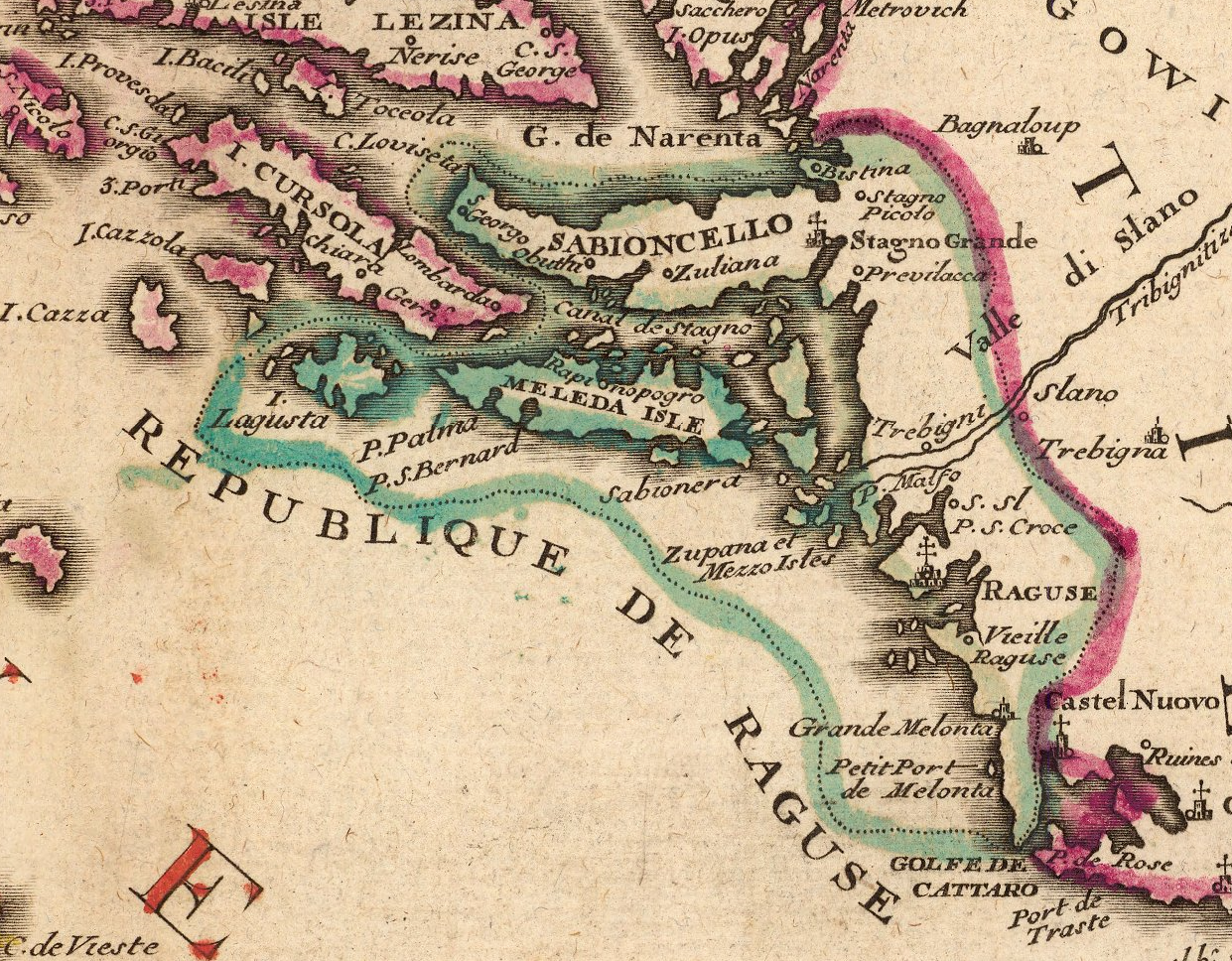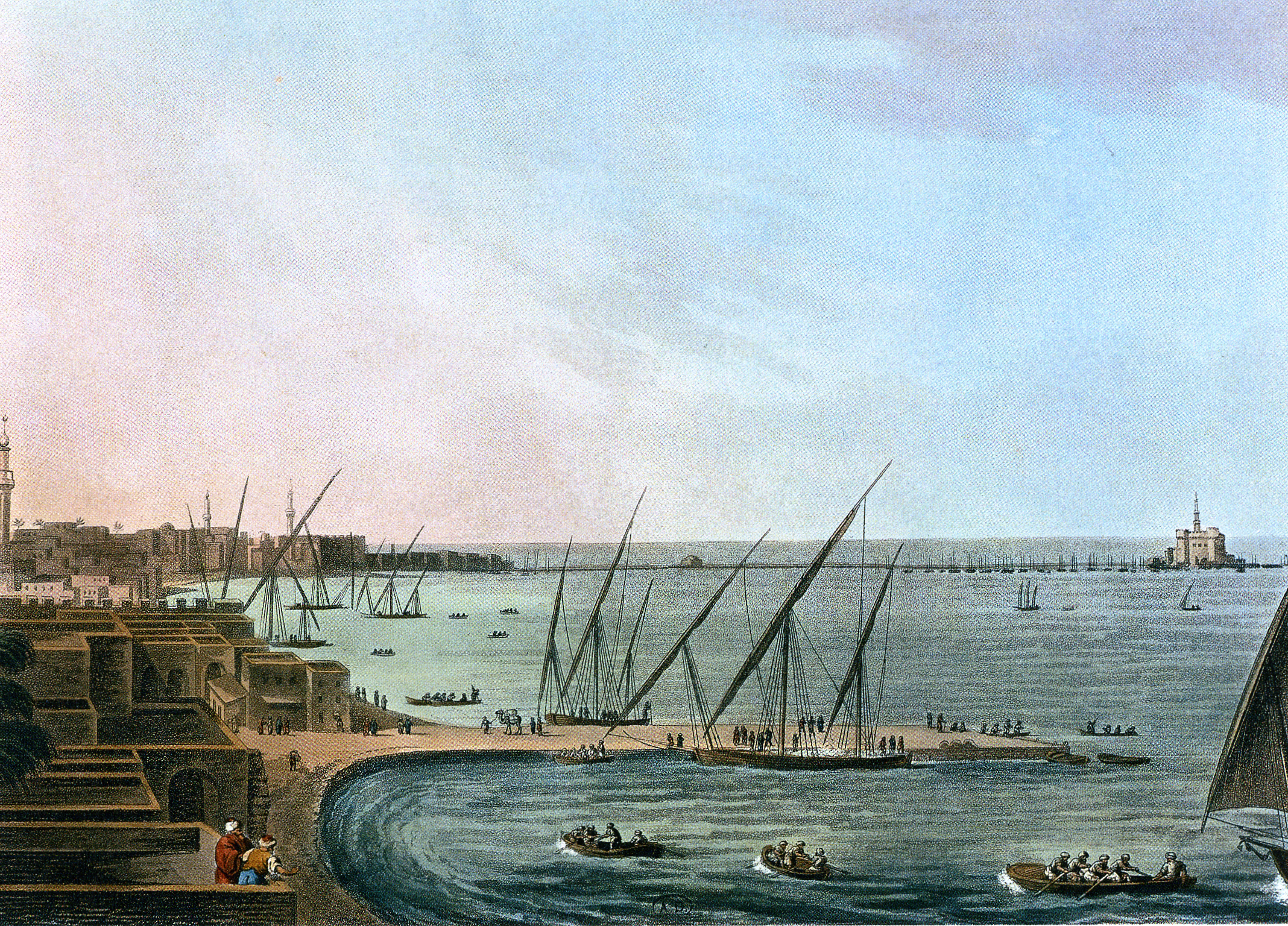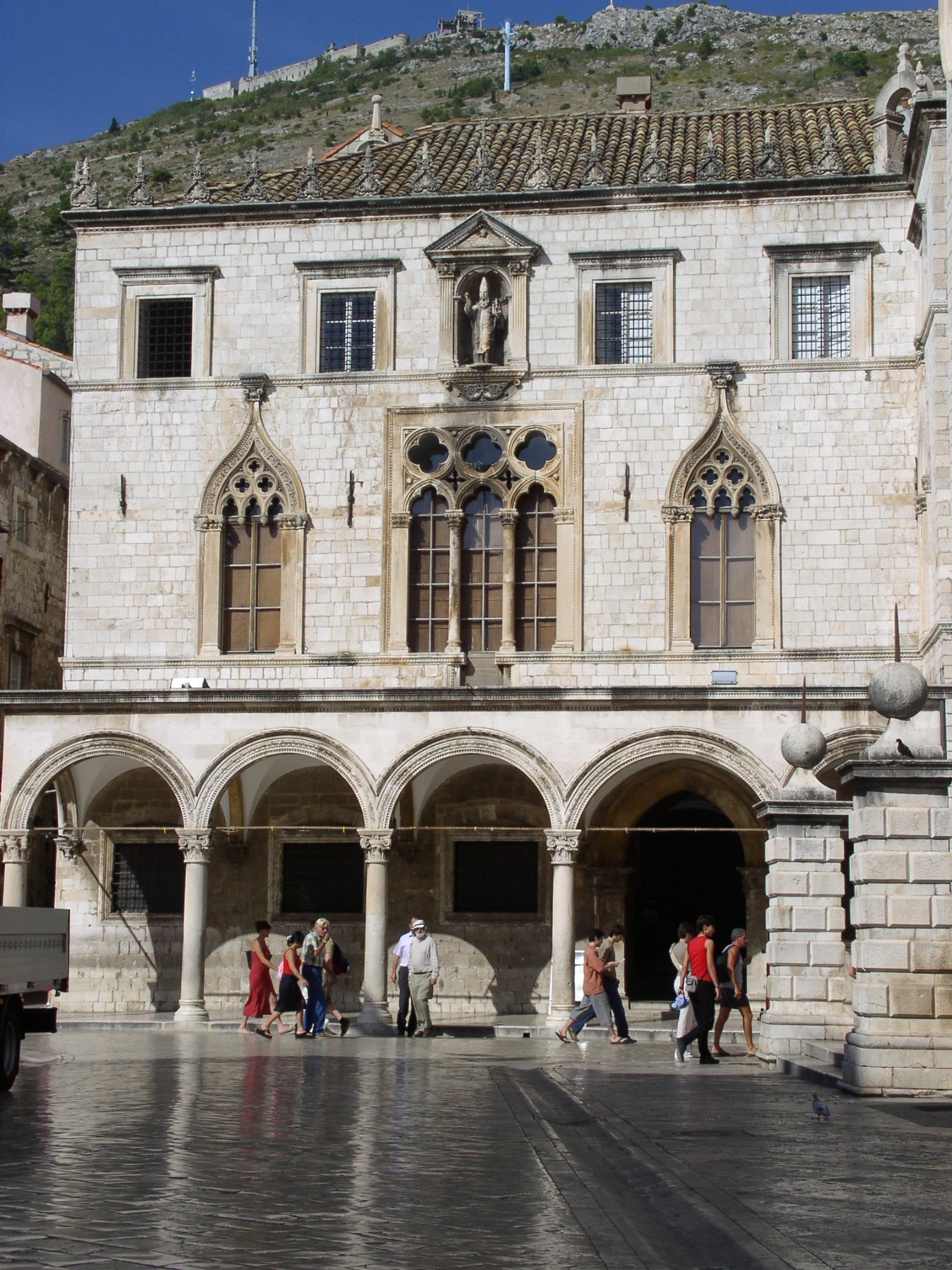|
Jakov Lukarević (historian)
Jakov Lukarević, , (born in Ragusa, 1547 or 1551 - died in Ragusa, 22 May 1615), was a Ragusan historian and diplomat. He was born according to different sources in 1547 or 1551, as the son of Rector Petar Lukarević and Mara Bond. Luccari family, also Lukarević or Lukarić, traced its patrician roots to the old Ragusan family. Jakov Lukarević became a member of the '' Great Council of the Republic of Ragusa'' in 1571. He was the representative of the Republic to the Ottoman sultan, the Bosnian Pasha. In 1613 he was elected Rector himself. During assignments in the Ottoman Empire in Istanbul, Bosnia and North Africa, he researched the connections between people of Slavic origin and the Islamic world. His work includes 1605 history of the city of Dubrovnik, published in Venice and entitled ''Comprehensive extract from Dubrovnik chronicles in four books'' (originally in ). The chronicle covers history of Dubrovnik from its foundation to 1600. In writing this chronicle, Lukarev ... [...More Info...] [...Related Items...] OR: [Wikipedia] [Google] [Baidu] |
Republic Of Ragusa
The Republic of Ragusa, or the Republic of Dubrovnik, was an maritime republics, aristocratic maritime republic centered on the city of Dubrovnik (''Ragusa'' in Italian and Latin; ''Raguxa'' in Venetian) in South Dalmatia (today in southernmost Croatia) that carried that name from 1358 until 1808. It reached its commercial peak in the 15th and the 16th centuries, before being conquered by Napoleon's First French Empire, French Empire and formally annexed by the Kingdom of Italy (Napoleonic), Napoleonic Kingdom of Italy in 1808. It had a population of about 30,000 people, of whom 5,000 lived within the city walls. Its motto was "'", a Latin phrase which can be translated as "Liberty is not well sold for all the gold". Names Originally named ' (Latin for "Ragusan municipality" or "community"), in the 14th century it was renamed ' (Latin for ''Ragusan Republic''), first mentioned in 1385. It was nevertheless a Republic under its previous name, although its Rector was appointed b ... [...More Info...] [...Related Items...] OR: [Wikipedia] [Google] [Baidu] |
Ottoman Egypt
Ottoman Egypt was an administrative division of the Ottoman Empire after the conquest of Mamluk Egypt by the Ottomans in 1517. The Ottomans administered Egypt as a province (''eyalet'') of their empire (). It remained formally an Ottoman province until 1914, though in practice it became increasingly autonomous during the 19th century and was under de facto British control from 1882. Egypt always proved a difficult province for the Ottoman Sultans to control, due in part to the continuing power and influence of the Mamluks, the Egyptian military caste who had ruled the country for centuries. As such, Egypt remained semi-autonomous under the Mamluks until Napoleon Bonaparte's French forces invaded in 1798. After Anglo-Turkish forces expelled the French in 1801, Muhammad Ali Pasha, an Albanian military commander of the Ottoman army in Egypt, seized power in 1805, and established an independent state which became an empire through conquests in Syria, Konya and other regions ... [...More Info...] [...Related Items...] OR: [Wikipedia] [Google] [Baidu] |
Ragusan Historians
Ragusan may refer to: * citizen of the Republic of Ragusa ** List of Ragusans Here follows a list of notable Ragusans and Rector (politics), Rectors of the Ragusan Republic, Republic of Ragusa (also known as the Republic of Dubrovnik), a Maritime republics, maritime republic centered on the city of Dubrovnik on the eastern ... * person from any other place called Ragusa {{disambig ... [...More Info...] [...Related Items...] OR: [Wikipedia] [Google] [Baidu] |
Ilarion Ruvarac
Ilarion (Jovan) Ruvarac (; September 1, 1832 – August 8, 1905) was a Serbian historian and Orthodox priest, a member of the Serbian Academy of Sciences and Arts (first Serbian Learned Society and Serbian Royal Academy of Sciences). He was the founder and one of the foremost proponents of the critical school of Serbian historiography. He was archimandrite of Grgeteg monastery. Biography Jovan Ruvarac was born at Sremska Mitrovica on 1 September 1832 to Reverend Vasilije Ruvarac (1803–1873) and his wife Julijana, née Šević. He had three brothers, Lazar, Kosta and Dimitrije. Lazar Ruvanac became an official in the Serbian government, Kosta Ruvarac (1837–1864) was a writer and literary critic who died while still a student at a university in Pest, and Dimitrije Ruvarac (1842–1933) was a historian and Orthodox clergyman. The Ruvarac family settled in Syrmia in Austria-Hungary, today's Serbia, from the region between Bihać and Cazin, nowadays Bosnia and Herzegovina, ... [...More Info...] [...Related Items...] OR: [Wikipedia] [Google] [Baidu] |
Mavro Orbini
Mavro Orbini (1563–1614) was a Ragusan chronicler, notable for his work '' The Realm of the Slavs'' (1601) which influenced Slavic ideology and historiography in the later centuries. Life Orbini was born in Ragusa (now Dubrovnik), the capital of the Republic of Ragusa, a Slavic-populated merchant city-state on the eastern shore of the Adriatic Sea. His name in Slavic was written by himself as Mavar Orbin. He was mentioned for the first time in sources dating to 1592. At 15 years old, he joined the Benedictines. After becoming a monk, he lived for a while in the monasteries on the island of Mljet where he was elected abbot and later in Ston. In the Kingdom of Hungary he was the abbot of the Benedictine monastery in Bačka (in Serbia) for a short time. Afterwards, he returned to Ragusa, where he spent the rest of his life. Like most Dalmatian intellectuals of his time, he was familiar with the pan-Slavic ideology of Vinko Pribojević. He made a very important contribution ... [...More Info...] [...Related Items...] OR: [Wikipedia] [Google] [Baidu] |
Croatian Encyclopedia
The ''Croatian Encyclopedia'' () is a Croatian general encyclopedia An encyclopedia is a reference work or compendium providing summaries of knowledge, either general or special, in a particular field or discipline. Encyclopedias are divided into article (publishing), articles or entries that are arranged Alp ... (with the national component), published in 1999–2009 by the Miroslav Krleža Institute of Lexicography. Overview The project began in 1999, and it represents a fifth iteration of the encyclopedic tradition that was established by Mate Ujević's ''Croatian Encyclopedia'', and continued in the '' Encyclopedia of the Lexicographical Institute'', as well as the two editions of its ''General Encyclopedia''. Eleven volumes were published in the period 1999–2009, with a new volume appearing every year. It is named "Croatian" encyclopedia (colloquially ''Croatica'') in the tradition of general-knowledge encyclopedias as ''Britannica''. Online edition The f ... [...More Info...] [...Related Items...] OR: [Wikipedia] [Google] [Baidu] |
Dubrovnik Archive
Dubrovnik Archive or State Archive in Dubrovnik or Dubrovnik State Archive () is the national archive in Dubrovnik, Croatia. Today archive is located in the Sponza palace, and holds materials created by the civil service in the Republic of Ragusa, i.e. notary and secretarial services from the 13th century, and after the fall of the Republic in 1808 documents created by the offices and institutions in the city of Dubrovnik during the French, Habsburg, Yugoslav and Croatian reign. The archive is important because the Republic of Ragusa had trade and political ties with all of the countries on the Mediterranean Sea and the interior of the southeastern part of the European continent; moreover, the documents and written records from that period represent very valuable historical material for the study of Croatian and Ragusan history, as well as the history of neighboring countries. History Dubrovnik archive was created as a result of notary and secretarial services in the 13th century ... [...More Info...] [...Related Items...] OR: [Wikipedia] [Google] [Baidu] |
Republic Of Venice
The Republic of Venice, officially the Most Serene Republic of Venice and traditionally known as La Serenissima, was a sovereign state and Maritime republics, maritime republic with its capital in Venice. Founded, according to tradition, in 697 by Paolo Lucio Anafesto, over the course of its History of the Republic of Venice, 1,100 years of history it established itself as one of the major European commercial and naval powers. Initially extended in the ''Dogado'' area (a territory currently comparable to the Metropolitan City of Venice), during its history it annexed a large part of Northeast Italy, Istria, Dalmatia, the coasts of present-day Montenegro and Albania as well as numerous islands in the Adriatic Sea, Adriatic and eastern Ionian Sea, Ionian seas. At the height of its expansion, between the 13th and 16th centuries, it also governed Crete, Cyprus, the Peloponnese, a number of List of islands of Greece, Greek islands, as well as several cities and ports in the eastern Me ... [...More Info...] [...Related Items...] OR: [Wikipedia] [Google] [Baidu] |
Dubrovnik
Dubrovnik, historically known as Ragusa, is a city in southern Dalmatia, Croatia, by the Adriatic Sea. It is one of the most prominent tourist destinations in the Mediterranean Sea, Mediterranean, a Port, seaport and the centre of the Dubrovnik-Neretva County. In 2021, its total population was 41,562. Recognizing its outstanding medieval architecture and fortifications, UNESCO inscribed the Old City of Dubrovnik as a World Heritage Site in 1979. The history of the city probably dates back to the 7th century, when the town known as was founded by refugees from Epidaurum (). It was under protectorate of the Byzantine Empire and later under the sovereignty of the Republic of Venice. Between the 14th and 19th centuries, Dubrovnik ruled itself as a Free state (polity), free state. The prosperity of the city was historically based on trade, maritime trade; as the capital of the maritime Republic of Ragusa, it achieved a high level of development, particularly during the 15th and 16t ... [...More Info...] [...Related Items...] OR: [Wikipedia] [Google] [Baidu] |
Bosnia Eyalet
The Eyalet of Bosnia (; By Gábor Ágoston, Bruce Alan Masters ; ), was an eyalet (administrative division, also known as a ''beylerbeylik'') of the Ottoman Empire, mostly based on the territory of the present-day state of Bosnia and Herzegovina. Prior to the Great Turkish War, it had also included most of Slavonia, Lika, and Dalmatia in present-day Croatia. Its reported area in 1853 was . Background After the execution of King Stephen Tomašević in 1463, the central part of the Kingdom of Bosnia was transformed into the sanjak of Bosnia. The Duchy of Herzegovina was added in 1483. History Establishment In 1580, Ferhad Pasha Sokolović became the first governor of the Bosnia Eyalet, as beylerbey (also referred to as "pasha"). The Bosnia Eyalet (or Pashaluk) included the Sanjak of Bosnia (central province), Sanjak of Herzegovina, Sanjak of Viçitrina, Sanjak of Prizren, Sanjak of Klis, Sanjak of Krka, and Sanjak of Pakrac. The Ottoman wars in Europe continued thro ... [...More Info...] [...Related Items...] OR: [Wikipedia] [Google] [Baidu] |
Rector (Ragusa)
The ''rector'' (in Latin; , ) was an official in the government of the Republic of Ragusa The Republic of Ragusa, or the Republic of Dubrovnik, was an maritime republics, aristocratic maritime republic centered on the city of Dubrovnik (''Ragusa'' in Italian and Latin; ''Raguxa'' in Venetian) in South Dalmatia (today in southernmost .... The holder was the head of the executive powers of Ragusa, part of the Small Council (''Consilium minus''). The rector was seated at the Rector's Palace. Partial list of rectors of Ragusa 13th century *1205 Damjan Juda 14th century *1358 Nikša Sorgo *March 1358 Petar Ragnina *1358 Ivan Pavov Gundulić *1358 Marin Bona *October 1358 Nikola Zavernego *1358 Marin Menze *1358 Marin Bona *March 1359 Ivan Cereva *July 1359 Nikša Sorgo *August 1359 Ivan Bona *1359 Marin Gozze *September 1359 Lovro Volcacio *October 1359 Savino Bonda *January 1360 Marin Bona *March 1360 Jakov Menze *April 1360 Ivan Cerva *May 1360 Nikola Zaverne ... [...More Info...] [...Related Items...] OR: [Wikipedia] [Google] [Baidu] |




